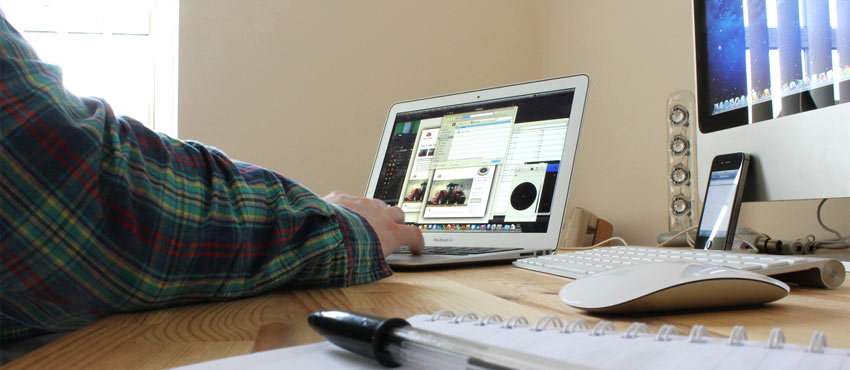For many of us, office culture can be a little overwhelming. Being asked to do urgent tasks by impatient colleagues, having to work amid a sea of noise and having your precious time eaten into by emergencies – all those problems and more make the world of work seem anything but attractive. Working from home, on the other hand, can be calming, but productivity can be an issue.

While you’re in a quieter setting where it’s easier to think clearly, if you’re at home, the temptation to slacken can be all too hard to resist, even if there’s something urgent to do. Fortunately, as this article on productivity from Conference Genie shows, a little self-discipline, routine and focus can make remote working just as, if not more productive than being in a heaving office!
Make your own workspace
One of the biggest advantages of working at home is that you can personalise your workspace in a way that’s impossible at head office. Having a comfortable chair to sit in, a desk with a mascot or something similar on it and even whatever computer/laptop/tablet you can afford are all perks of remote working.
Keep in touch with the wider world
Whether you’re an employee or running a business, it’s important to let everyone know you’re ready to talk to them. Keep your landline phone plugged in, your smartphone charged and have your email inbox open, as you can never be too sure when clients or colleagues want to get in touch. Having social media accounts open can help too.
Stay focused
Home can be full of distractions, but it’s possible to cut them out. To eliminate background noise, keep all the windows and doors closed. Also, it’s worth refraining from putting the TV on, while sticking to one radio station will be enough. As for timekeeping, make sure you get up at a set time, as you’ll be in a routine that prepares you for the day’s tasks.
Stick it out
After a bad or unproductive day of working at home, it might be tempting to give up, but settling in can take time. Give it a few weeks and then see if working from home is right for you. Thinking of the advantages in terms of saving money and time can help, as well as the ability to work flexible hours as this article from Forbes suggests.
Photo credit: David Martyn Hunt




